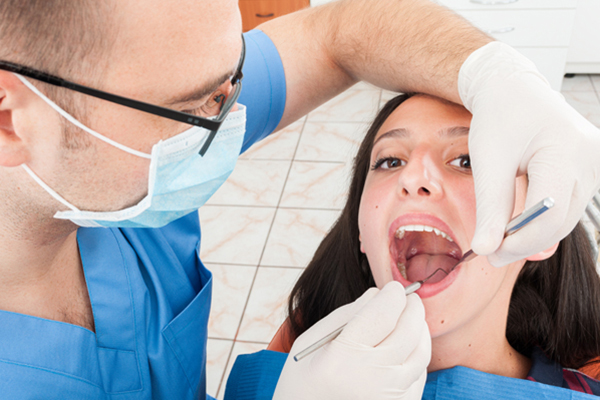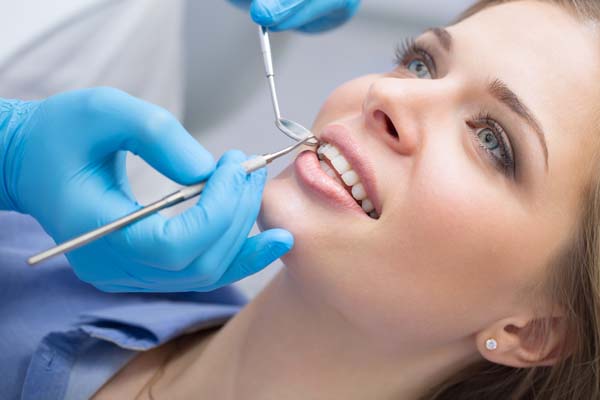Endodontics Aftercare Steps

Endodontics is a branch of dentistry that deals with the tissue inside teeth, also known as the dental pulp. Endodontic treatment is used to treat dental infections, tooth decay, and tooth damage. Patients need to pay extra attention and care after undergoing an endodontic procedure. The steps taken during the recovery period are important because they help to prevent reinfection and minimizes discomfort.
Steps to take after an endodontics procedure
A common endodontic procedure is the root canal. While root canal treatment may appear difficult, it is normally performed as an outpatient procedure and patients are usually sent home the same day with the necessary instructions. Following the procedure, patients must take care of their teeth and carefully follow the recommendations, including:
Brushing and flossing
Brushing and flossing are the two most important processes in dental hygiene. Patients must ensure they keep a proper oral hygiene regimen after undergoing an endodontic procedure. It is advisable to keep the treated area clean to prevent the risk of additional infection. Brushing the teeth twice a day and flossing once a day can help ensure this. However, patients also need to be cautious when cleaning and flossing their teeth to avoid discomfort.
Consume soft foods
The treated tooth will be sensitive for a few days. Therefore, it is better to keep track of meals to consume. Patients should stay away from foods that cause inflammation. Certain foods, such as fries, chips, nuts, or abrasive substances, might strain the tooth and should be avoided. Also, patients should avoid excessive intake of sweet foods because they might contribute to infection.
Aside from that, for a few days, avoid biting or chewing strongly with the treated tooth. This will ensure that the tooth remains healthy and in place. Choose something simple to chew. Comfort food is the way to go. Oatmeal, soups, soft vegetables, scrambled eggs, mashed potatoes, mashed bananas, and spaghetti, for example, are tooth-friendly foods. Hard, greasy, and sticky foods are not advisable since they might cause tooth cracks.
Take medications as instructed
After the numbness from the anesthetic wears off, patients may experience discomfort in the area during the healing process. Soreness is also common. It may feel unpleasant at first, but these feelings are temporary and may be treated with over-the-counter pain medications. To minimize discomfort, the dentist may potentially prescribe a stronger painkiller.
They will also prescribe antibiotics to stop the infection from spreading. Patients need to follow the dentist's orders and take their medications on time. If discomfort persists or infection is suspected, make an appointment with the dentist immediately.
Ready to schedule an appointment?
Following endodontic treatment, you must take good care of your teeth. To avoid future issues, you must maintain a close eye on your dental health, from brushing and flossing to eating healthily and seeing your dentist regularly. By taking good care and keeping dental hygiene after the procedure, you can have a smooth recovery.
Request an appointment here: https://www.gatewaydental.org or call Gateway Dental Dr. William Swann DDS at (301) 485-7492 for an appointment in our Bowie office.
Check out what others are saying about our services on Yelp: Endodontics in Bowie, MD.
Recent Posts
The American Association for Pediatric Dentistry recommends taking your child to a dentist for kids before the age of one. At this point, some of their teeth should have erupted, so a dentist can evaluate their development and spot any abnormalities. Issues like a poor bite are easier to address when detected early in life…
A porcelain dental crown is a versatile dental restoration that protects and preserves damaged, weakened, or decayed natural teeth. By encasing the visible portion of a tooth, a porcelain dental crown restores its function, strength, and appearance. This treatment effectively saves a natural tooth from further damage, ensuring long-term oral health and maintaining the aesthetics…
Teeth whitening is one of the most popular cosmetic dental procedures. Many individuals explore various teeth whitening options to improve the brightness of their smile. When deciding between take-home teeth whitening trays and over-the-counter products, it is important to understand how each works and the long-term results you can expect from each option.Take-home whitening trays…
Tooth implants have become a popular replacement option for individuals with missing teeth. Also known as dental implants, this replacement option is one that requires a semi-invasive oral surgery. The term oral surgery often sparks fear in individuals due to the potential for pain; however, what is important to know is that tooth implants are…


